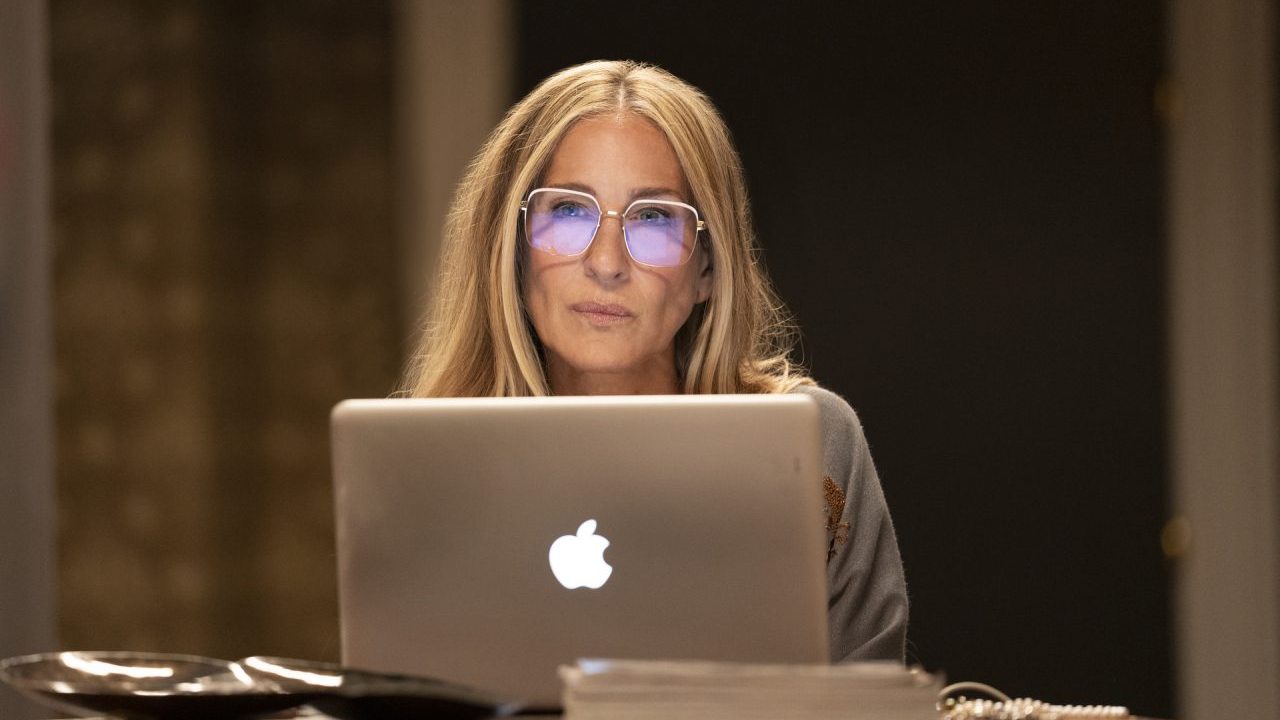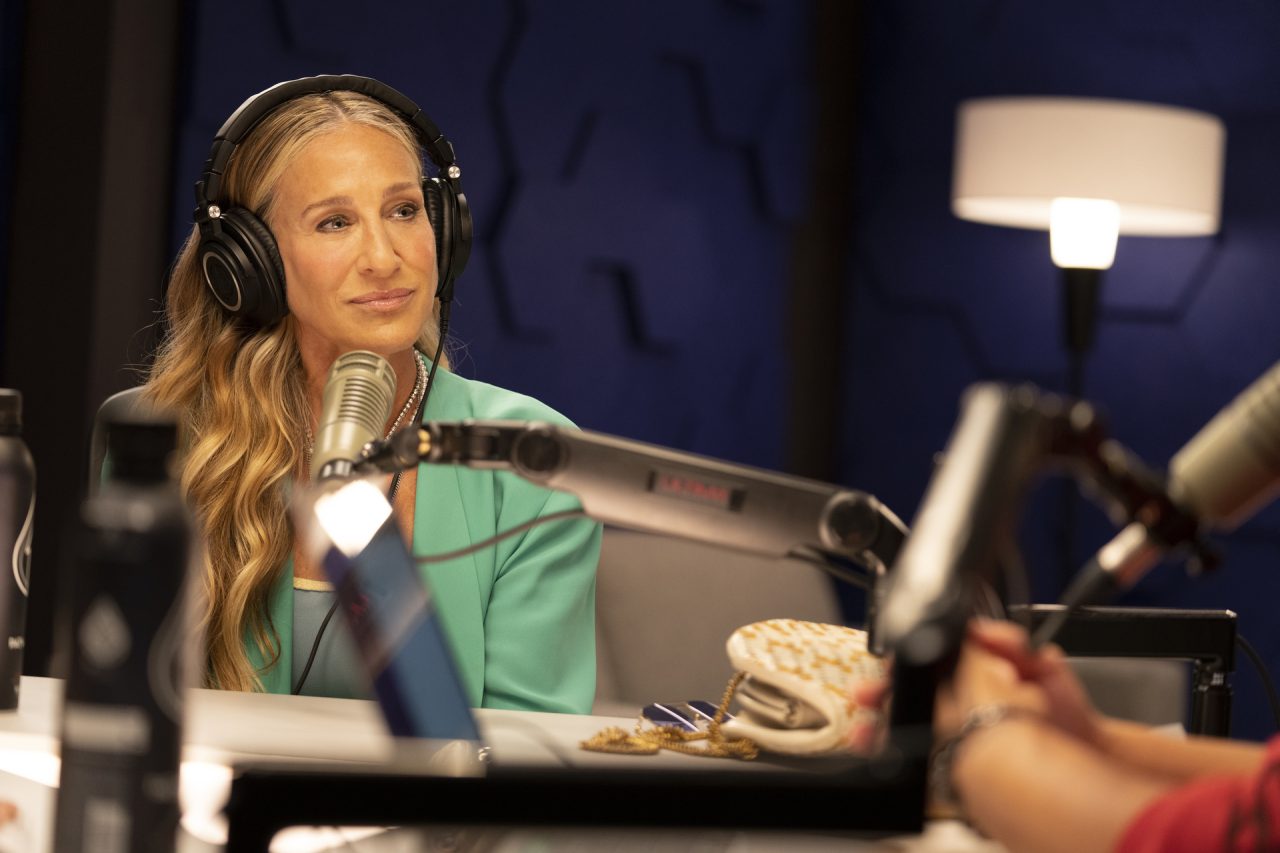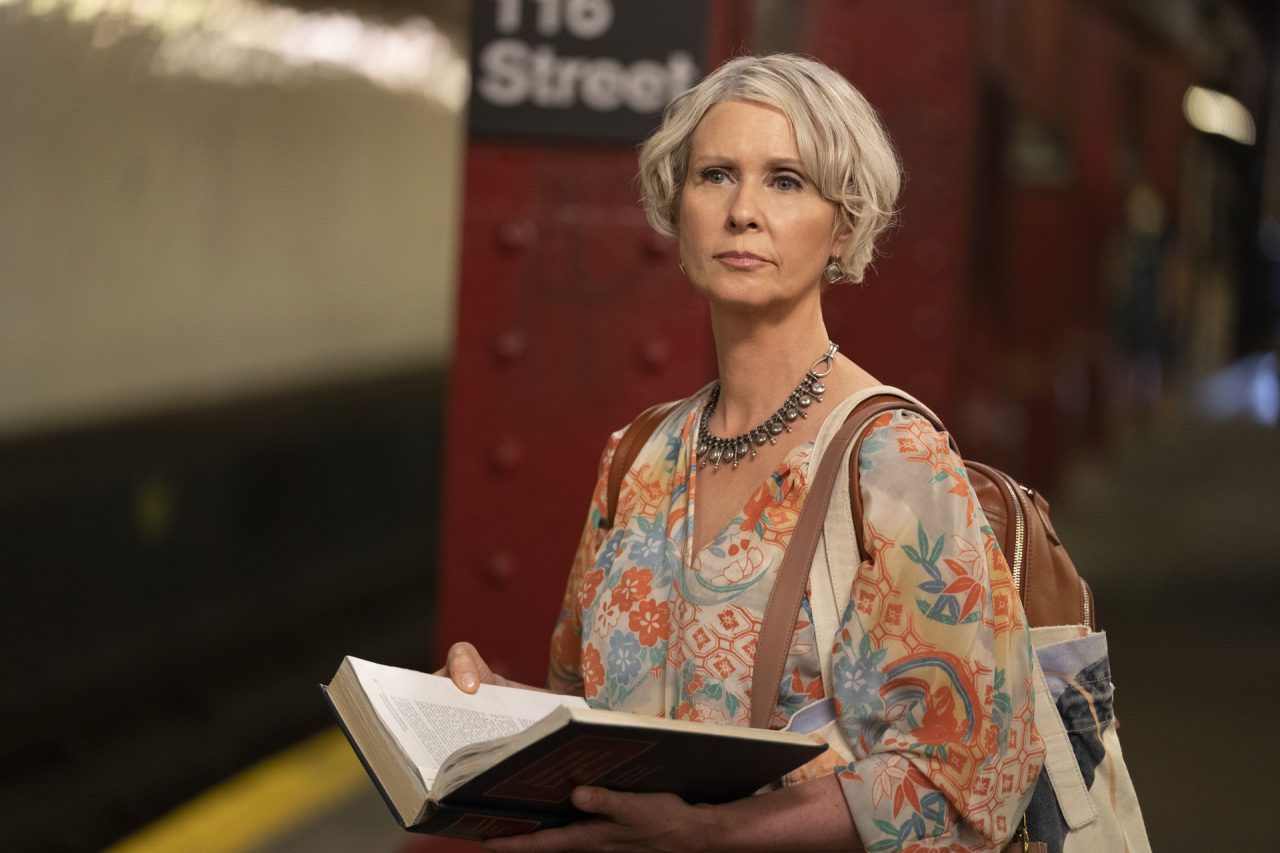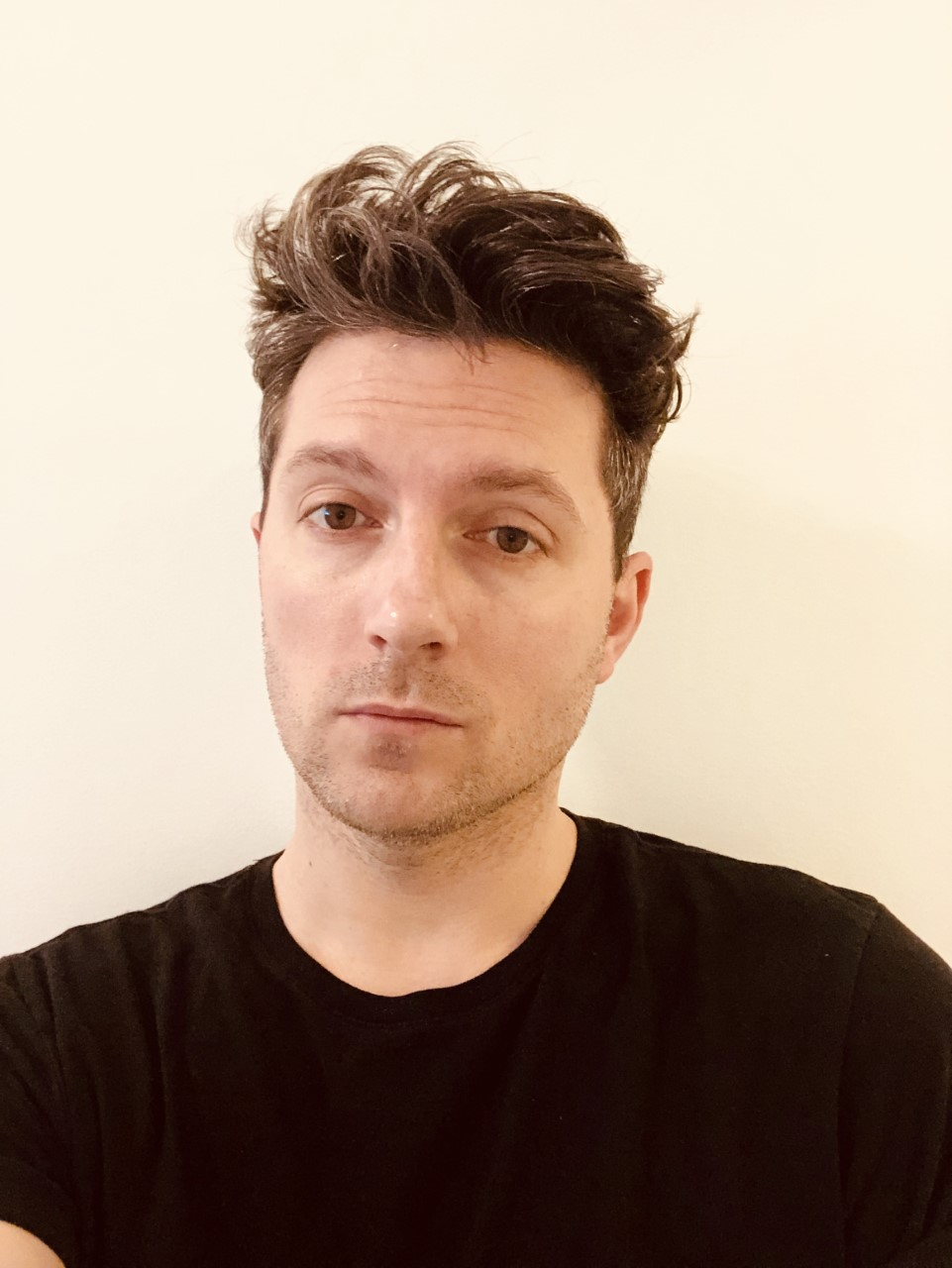

So far in And Just Like That, we’ve seen former sex columnist Carrie Bradshaw getting up to a lot of familiar shenanigans: lunching with friends, shopping, house hunting, stalking her late husband’s ex-wife. She’s a busy lady, always has been! But the one thing we really haven’t seen her doing is writing.
Of course, Carrie’s column was central to Sex and the City. It was the original series’ namesake and framing device. Her ever present voiceovers with their ubiquitous puns were meant to represent her writing voice, the thoughts and theses she was working through in each piece she was writing. Every episode featured scenes of the character tapping away at her laptop or wandering around her apartment trying to make sense of the story she was working on (it’s all writing, as they say). She was constantly talking about her deadlines and insisting to people that, “I’m a writer,” in an effort to be taken seriously.
Carrie’s writing wasn’t just the premise of the show, it was seemingly fundamental to her identity. So, it’s particularly odd in And Just Like That not to see her doing this thing that was ostensibly her calling, her vocation. And so—wait for it—I couldn’t help but wonder: Is Carrie Bradshaw still a writer?
Six episodes in, the evidence is thin. Carrie seems to spend her time documenting people with “interesting style” on her Instagram. But, as she mentioned to Che (Sara Ramírez), the host of the podcast on which she regularly appears, she isn’t on Twitter, the preferred social medium of writers and journalists. In fact, Che’s podcast seems to be Carrie’s sole source of employment. Not that she needs to work. At the time of his death, Mr. Big still seemed to be rolling in ill-gotten 1980s Wall St. bro dough, the lion’s share of which he bequeathed to Carrie.

But what of her books? We get glimpses of them around both the apartment she and Big share and her old place, as a reminder that she’s a successful author. In the premiere, Big asks if she’s working on something for her next book, so presumably she still has a publisher. And yet, we’re told that one of the primary reasons that Carrie is no longer in touch with Samantha has to do with the fact that she ended their professional relationship. “Because of, you know, what the book business is now, it just didn’t make sense for me to keep her on as a publicist,” she reminds Miranda in the same episode. What the book business is now? What is the book business now? Can bestselling author Carrie Bradshaw’s brand of pithy ’90s consumerist chick lit really have gone out of fashion?!
Of course, Carrie isn’t the only character on And Just Like That going through a career change. Miranda, we’re told, left corporate law to get her Master’s in Human Rights, a development that, while it may feel a little white-guilty, makes sense and is a welcome change for the character. Miranda is absolutely the type of woman who could have conceivably grown disenchanted with her own brand of ’90s lean-in feminism and shifted into post-Trump pink pussy hat mode. It brings the character into the present moment in a believable, relatable way.

Similarly, a shift away from writing does make a certain amount of sense for Carrie. It goes without saying that the world of And Just Like That is very different from the world of Sex and the City. When the original show was in its prime, there was still a plethora of alt-weeklies published in New York, in addition to the city’s major newspapers, where a writer like Carrie might pitch stories or even hold a staff position. It was the beginning of the blog boom, when it was still possible to land a book deal based on a popular LiveJournal or whatever. But those days are gone. One imagines that the New York Star, the fictional paper in which Carrie’s column ran, has folded. The kids these days are on TikTok, and the young writers who came to New York in the aughts to forge a career in journalism or literary nonfiction have moved on to more lucrative marketing or PR gigs and maybe maintain a Substack on the side. Even Candace Bushnell, the real-life Carrie, has branched out, briefly hosting a satellite radio show and, more recently, starring in a one-woman show Off-Broadway. It makes sense that Carrie’s career would look very different now than it did in 2004.
But while Miranda’s career transition corrects for some of the character’s qualities that haven’t aged particularly well, Carrie’s plays into some of her more unfortunate characteristics. The perception that, despite all her protestations to the contrary, she was never a serious writer, for instance; that her column and her pink jacketed books were just something fun that she did between brunches and shopping trips, a way to monetize her social life. At this point in the character’s arch, Carrie is essentially a wealthy woman of leisure. It’s a development that, while believable, feels out of touch with the scrappy, thoughtful version of the character we came to love in Sex and the City as well as with the current cultural and political mood.














